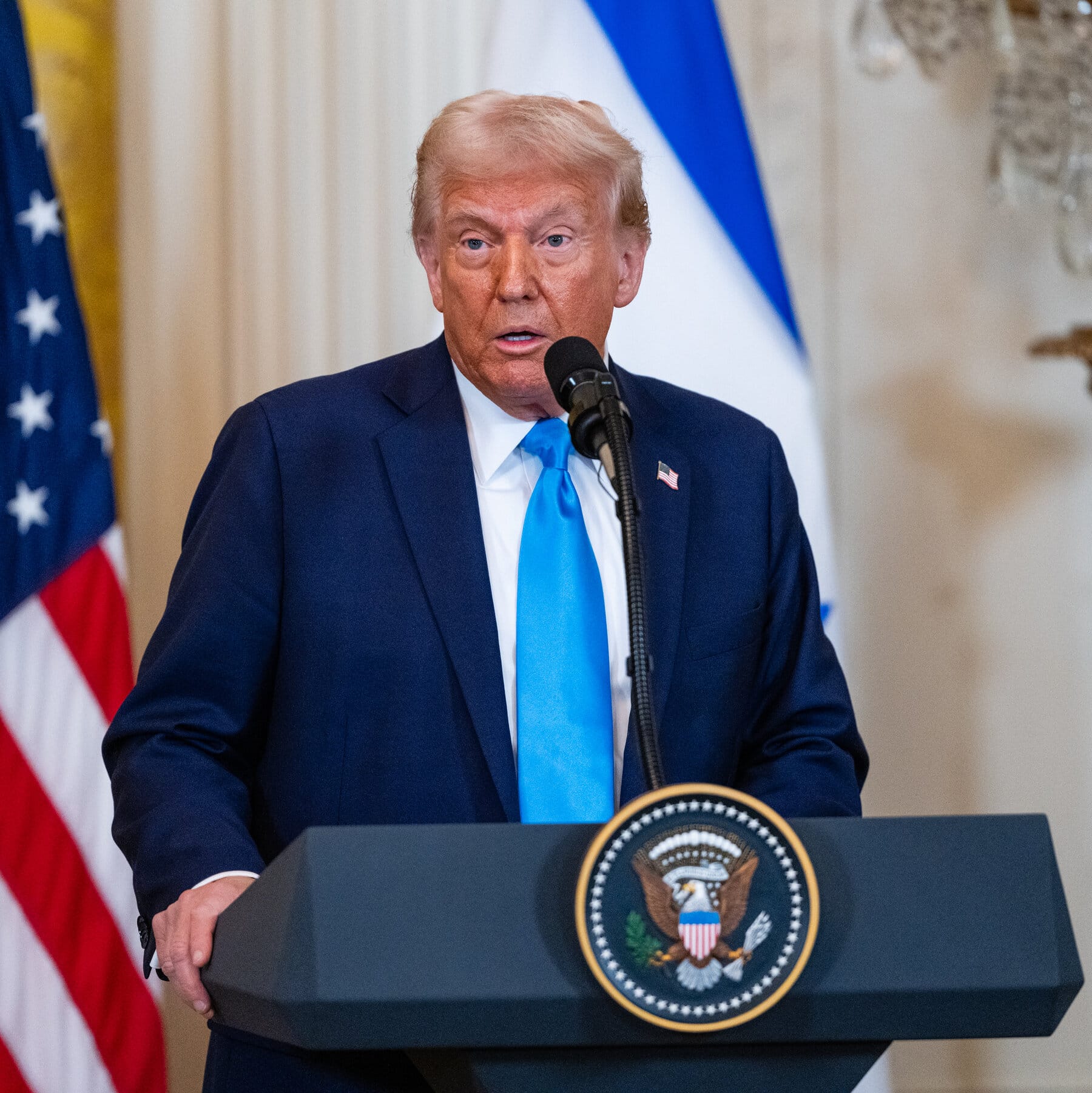What has happened?
President Donald Trump has proposed that the United States “take over” and “own” the Gaza Strip.
Arguing that the region should be completely rebuilt and transformed into an economic hub.
What is the plan?

At a press conference alongside Israeli Prime Minister Benjamin Netanyahu, Donald Trump suggested that Palestinians in Gaza should be permanently resettled in neighboring Arab countries while the US leads reconstruction efforts.
His remarks, made at a White House press event, stunned observers both in the US and internationally.
Donald Trump not only insisted that the US could take control of Gaza but also refused to rule out deploying American troops “if necessary” to enforce this vision.
Donald described Gaza as a “demolition site” that should be cleared and redeveloped, adding that he sees a “long-term ownership position” for the US in the region.
This latest proposal follows a series of radical foreign policy statements from Trump, who in the past has floated the idea of buying Greenland, warned Panama over control of the canal, and even joked about Canada becoming the 51st US state.
But his statements on Gaza have been met with immediate condemnation, with critics warning that forcibly relocating its population could amount to ethnic cleansing and violate international law.
Why it is a matter of concern ?

Trump’s proposal represents an extraordinary break from traditional US policy, which has historically supported a two-state solution to the Israeli-Palestinian conflict. For decades, US administrations-both Republican and Democratic-have sought to balance support for Israel’s security with diplomatic efforts to establish a Palestinian state in Gaza and the West Bank.
If implemented, Trump’s plan would likely shatter any remaining hopes for Palestinian sovereignty, further alienate Washington’s Arab allies, and increase tensions in the already volatile Middle East.
Beyond the foreign policy implications, the proposal could also have significant domestic political consequences. Trump’s remarks forced his Republican allies to once again defend or downplay his controversial rhetoric, while Democrats quickly condemned the idea as reckless and dangerous. The statement also diverted attention from other pressing political issues, including President Joe Biden’s handling of the ongoing conflict and US military support for Israel.
What they are saying?
Trump’s comments have sparked immediate reactions from key political figures, world leaders, and human rights groups.
Netanyahu: “It’s worth paying attention to this… something that could change history.”
Senior Hamas official Sami Abu Zuhri: He denounced the proposal as an “expulsion from their land,” warning. “We consider them a recipe for generating chaos and tension in the region because the people of Gaza will not allow such plans to pass.”
Democratic US Senator Chris Murphy strongly criticized the idea on X, saying: “He’s totally lost it. A US invasion of Gaza would lead to the slaughter of thousands of US troops and decades of war in the Middle East. It’s like a bad, sick joke.”
Will Trump do it?
Trump’s foreign policy has long been defined by maximalist proposals that disrupt conventional diplomatic norms.
In his first term, he recognized Jerusalem as Israel’s capital, moved the US embassy there, and brokered the Abraham Accords, normalizing relations between Israel and several Arab states.
While some dismissed Tuesday’s announcement as another of Trump’s signature hyperbolic provocations, others warned that it reflects a growing shift in US political discourse toward openly discussing Palestinian displacement.
Trump’s vision for Gaza raises more questions than answers. His comments raise immediate logistical and legal questions: How would the US claim sovereignty over Gaza? Who would govern it? What security force would oversee its redevelopment? Would any international body recognize such a move?
Yet, in typical Trumpian fashion, the US president seemed unfazed by the details.
“Everybody I’ve spoken to loves the idea of the United States owning that piece of land,” he insisted. “We’ll make sure it’s done world class.”
Will Arab Countries accept refugees?

His call for resettling Palestinians echoes the long-held stance of Israel’s far-right politicians, who argue that Gaza’s population should be relocated to neighboring Arab states.
However, Egypt and Jordan-two countries already hosting large Palestinians refugee populations-have repeatedly rejected such proposals.
Consequence
The idea of a US military presence in Gaza is also highly controversial.
Successive US administrations, including Trump’s own during his first term, have avoided direct military involvement in the Israeli Palestinian conflict beyond diplomatic and financial support.
Deploying US troops to Gaza would not only be a dramatic escalation but could also provoke armed resistance from Palestinian factions and further destabilize the region.
The bottom line
Trump’s proposal to take over Gaza and resettle its Palestinian population is one of his most radical foreign policy ideas yet. While it aligns with Israel’s far right, it is almost certain to face opposition from US allies, international legal experts, and the Palestinian population itself.
His suggestion of a US military role in enforcing the plan raises the stakes even higher, setting up a potential flashpoint in an already volatile region. Whether this is another instance of Trump making extreme statements to shift the debate-or an actual policy he would try to implement-remains to be seen.
For more interesting articles, visit teclearnings
